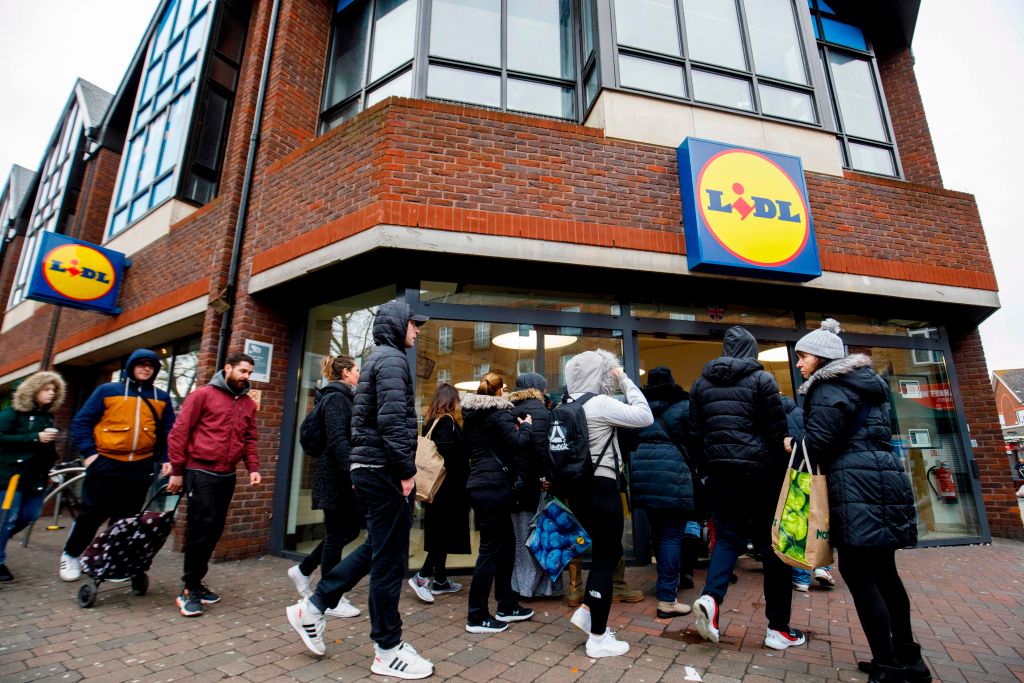It had to be. We were barely into the first week of the coronavirus emergency than the Prime Minister and others started invoking the ‘Blitz spirit’. You know, that incomparable time soon after the start of world war two when Brits stood firm and united against the worst that Nazi Germany could hurl at our brave and plucky islands? People helped each other, class distinctions blurred, and the Queen Mother visited London’s bombed-out East End. We kept calm, we carried on, and we prevailed.
It has taken a few days, but now, equally inevitably, we have the march of the Blitz-spirit sceptics – of whom, I admit, to being one. Let’s not be too mealy-mouthed. As the enemy pounded British cities, there were extraordinary acts of kindness and generosity. There were many people who showed almost unbelievable fortitude (sometimes, of course, because they had to). But the ‘Blitz spirit’ then, as now, was largely a confection, a propaganda ploy applied to keep up morale. Then, once the hostilities were over, it was sealed into the mythology of the war which, as the victors, the British wrote.
In fact, the war generally saw a sharp (57 per cent) rise in crime of all kinds, including murder. Some of the most memorable images, such as the milkman delivering as usual, were fabricated – the ‘fake news’ of the day – to reinforce the desired narrative. There was massive hoarding and a flourishing black market.
These are still awkward truths. So awkward that as recently as 2010 the BBC was criticised for broadcasting Bandits of the Blitz, a radio programme about wartime crime and speculation, presented by the journalist, Duncan Campbell. It is only three years ago that another journalist Simon Calder made a series about his grandfather’s reporting on the Blitz, which described the official response as ‘shocking disorganisation, compounded by official lethargy’. And it is only two years ago that Peter Hitchens published The Phoney Victory, a book that comprehensively explodes the mythology in which successive post-war generations, including mine, grew up, and was largely cold-shouldered by reviewers. Still, it seems, the British are not quite ready for the truth.
But it is beyond time that they were, because these heroic myths have encouraged a whole national mindset according to which Brits never behaved badly during the war and won a victory that was not just military, but overwhelmingly moral and deserved. I have lost count of the conversations I have had over the years, where someone assures me that, even if the British Isles had been occupied, everyone, to a man, woman and child would have joined the Resistance. There would have been no collaborators and no informers, and of course no hoarders or looters or profiteers. (Or, just perhaps a very, very few.)
Well, the panic-buying and proliferating scams linked to Covid-19 should finally give the lie to that. Almost the first response to the advance of the virus to these shores was a rush to empty shop shelves of toilet roll and dried pasta; sanitising gel and face masks had already gone. Ministers only made it worse when they warned against stockpiling and called for good sense and consideration. That was a week ago and the cue for huge pre-dawn queues to form outside supermarkets and shopping centres last Sunday, with latecomers saying the shelves looked as though they had been consumed by locusts.
Now, I grant, this is not quite collaborating with the enemy. But what has happened in the still early stages of the coronavirus crisis hardly suggests that Brits behave very differently from anybody else when faced with a threat of near war-time proportions. Nor does it suggest they would have behaved significantly better than most Continental Europeans if Britain had been invaded in 1940 and subject to German occupation.
For most of the 75 years since the war, we have tended to take a superior, even condescending, attitude to the war-time experiences of other Europeans, as though they, unlike us, were prone to weakness, corruptibility and a general lack of moral fibre. Little effort has been made to understand the agonising choices that many Continental Europeans, including Germans, had to make.
Whether to keep a professional job that demanded a Hitler salute; whether to stop your children joining the Hitler-Youth (which would have barred them from higher education), whether to risk your life trying to protect someone else; whether to adapt (and live) or rebel (and probably die) when power changed hands? These are not choices or compromises most Brits ever had to make.
Our failure to even try and comprehend how the war was for Europe has been a block to our understanding of what lies across the Channel, where national borders have been shifting and porous. The truth is that those who take the high ground in extreme situations are vanishingly few. Admiring the heroism of these individuals is one thing. But it should not absolve us from trying to understand why the vast majority took another course. Perhaps, with the evidence that our own moral fibre is under pressure from coronavirus, we could finally abandon our superiority complex that has lasted 75 years.





Comments